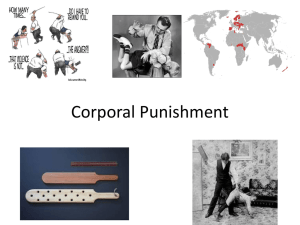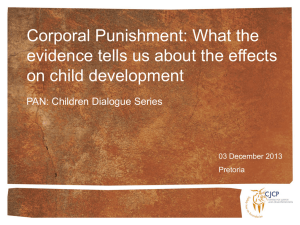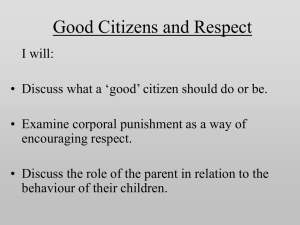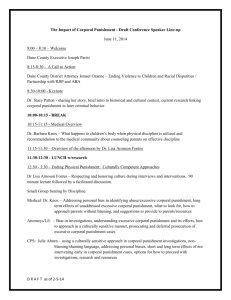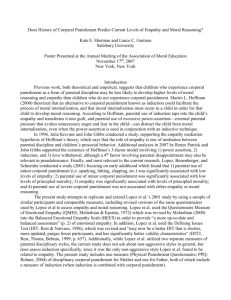msword - Gary Direnfeld, MSW, RSW
advertisement
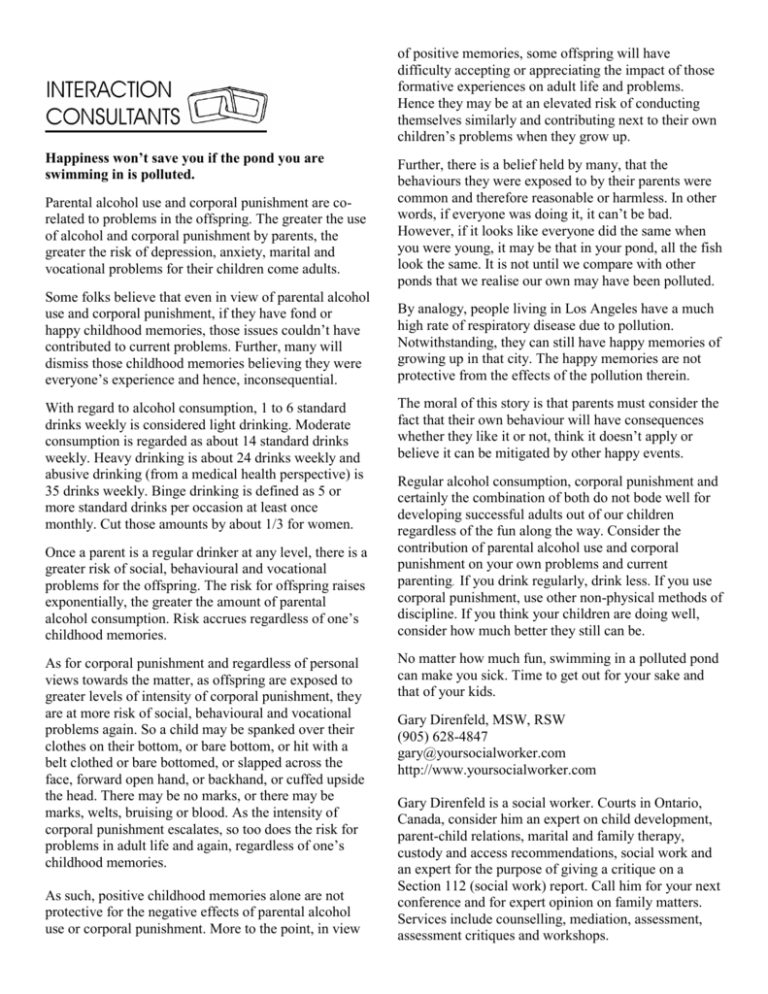
of positive memories, some offspring will have difficulty accepting or appreciating the impact of those formative experiences on adult life and problems. Hence they may be at an elevated risk of conducting themselves similarly and contributing next to their own children’s problems when they grow up. Happiness won’t save you if the pond you are swimming in is polluted. Parental alcohol use and corporal punishment are corelated to problems in the offspring. The greater the use of alcohol and corporal punishment by parents, the greater the risk of depression, anxiety, marital and vocational problems for their children come adults. Some folks believe that even in view of parental alcohol use and corporal punishment, if they have fond or happy childhood memories, those issues couldn’t have contributed to current problems. Further, many will dismiss those childhood memories believing they were everyone’s experience and hence, inconsequential. With regard to alcohol consumption, 1 to 6 standard drinks weekly is considered light drinking. Moderate consumption is regarded as about 14 standard drinks weekly. Heavy drinking is about 24 drinks weekly and abusive drinking (from a medical health perspective) is 35 drinks weekly. Binge drinking is defined as 5 or more standard drinks per occasion at least once monthly. Cut those amounts by about 1/3 for women. Once a parent is a regular drinker at any level, there is a greater risk of social, behavioural and vocational problems for the offspring. The risk for offspring raises exponentially, the greater the amount of parental alcohol consumption. Risk accrues regardless of one’s childhood memories. As for corporal punishment and regardless of personal views towards the matter, as offspring are exposed to greater levels of intensity of corporal punishment, they are at more risk of social, behavioural and vocational problems again. So a child may be spanked over their clothes on their bottom, or bare bottom, or hit with a belt clothed or bare bottomed, or slapped across the face, forward open hand, or backhand, or cuffed upside the head. There may be no marks, or there may be marks, welts, bruising or blood. As the intensity of corporal punishment escalates, so too does the risk for problems in adult life and again, regardless of one’s childhood memories. As such, positive childhood memories alone are not protective for the negative effects of parental alcohol use or corporal punishment. More to the point, in view Further, there is a belief held by many, that the behaviours they were exposed to by their parents were common and therefore reasonable or harmless. In other words, if everyone was doing it, it can’t be bad. However, if it looks like everyone did the same when you were young, it may be that in your pond, all the fish look the same. It is not until we compare with other ponds that we realise our own may have been polluted. By analogy, people living in Los Angeles have a much high rate of respiratory disease due to pollution. Notwithstanding, they can still have happy memories of growing up in that city. The happy memories are not protective from the effects of the pollution therein. The moral of this story is that parents must consider the fact that their own behaviour will have consequences whether they like it or not, think it doesn’t apply or believe it can be mitigated by other happy events. Regular alcohol consumption, corporal punishment and certainly the combination of both do not bode well for developing successful adults out of our children regardless of the fun along the way. Consider the contribution of parental alcohol use and corporal punishment on your own problems and current parenting. If you drink regularly, drink less. If you use corporal punishment, use other non-physical methods of discipline. If you think your children are doing well, consider how much better they still can be. No matter how much fun, swimming in a polluted pond can make you sick. Time to get out for your sake and that of your kids. Gary Direnfeld, MSW, RSW (905) 628-4847 gary@yoursocialworker.com http://www.yoursocialworker.com Gary Direnfeld is a social worker. Courts in Ontario, Canada, consider him an expert on child development, parent-child relations, marital and family therapy, custody and access recommendations, social work and an expert for the purpose of giving a critique on a Section 112 (social work) report. Call him for your next conference and for expert opinion on family matters. Services include counselling, mediation, assessment, assessment critiques and workshops.


